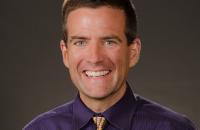Actuarial Science Certificate Program Overview
The Actuarial Science Certificate is designed for people who have completed or almost completed a bachelor's degree, typically with at least a minor in mathematics from an accredited institution and who would like to complete courses to prepare them for the actuarial profession. The curriculum allows students to complete the Society of Actuaries' and Casualty Actuarial Society's Validation by Educational Experience (VEE) requirements and prepares students for the professional actuarial exams in probability and financial mathematics.

How Do I Know if This Program Is Right for Me?
Our program, recognized by the Society of Actuaries, offers a comprehensive curriculum covering essential areas such as accounting, economics, mathematics and risk management. With a strong emphasis on mathematics, this certificate is ideal for students with a solid foundation in math who aspire to excel in the field of actuarial science. By completing this certificate, you not only prepare for professional actuarial exams but also fulfill requirements necessary to advance in esteemed actuarial societies, setting a strong foundation for a successful career in actuarial science.
Interested in a four-year degree, check out our Actuarial Science Bachelor's Program.

Curriculum
Required Courses
| Course # | Title | Credit Hours | Prerequisites |
|---|---|---|---|
| MATH 320 | Financial Mathematics | 3 | MATH 223, 305 |
| MATH 341 | Applied Regression Analysis | 3 | MATH 108 or 318 |
| ACCT 201 | Financial Accounting | 3 | None |
Plus an additional 12 credit hours in two of the three sequences–probability, economics or finance.
For more information about the curriculum, view the Academic Catalog.
Can You Give Me a Glimpse of My Future?
An actuary is a financial professional who specializes in assessing and managing risk. They use mathematical and statistical techniques to analyze data and evaluate the financial implications of uncertain future events, such as accidents, natural disasters, or investment risks.
